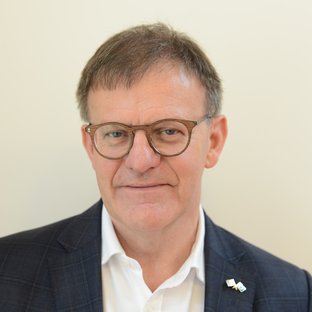
Professor Andrew Parker
Biography
I work in the University Laboratory of Physiology, which is one of the five pre-clinical departments within the University's Medical School. I am involved in the pre-clinical teaching of medical students, as well as teaching for undergraduate science degrees in Physiological Sciences and the physiology parts of the Psychology and Philosophy (PP) degree. The University also has an active graduate course in Neuroscience, which is a one-year taught M.Sc. degree with research projects.
I have been the Principal Bursar at St John's College since October 2009. The Principal Bursar holds the responsibility for the assets of the College, including its buildings and their contents, the investment portfolio that supports the College’s teaching and research activities, as well as HR responsibility for non-academic staff.
Research Interests
My research concerns the visual system, both its neuronal mechanisms within the brain and the psychology of perception. I started out as a psychologist and gradually migrated to a more physiological approach during my career. Our research group mainly works on how we see objects as three-dimensional shapes. Currently we are investigating how the brain combines the neural signals from the two eyes to give us an impression of depth.
We use a wide range of techniques: we measure how human observers respond perceptually to visual patterns, we record electrical signals from the visual cortex and we examine the responses of the entire human brain with modern imaging techniques, such as functional magnetic resonance imaging (fMRI). Within St John's we have a broad community of people studying and working in the areas of medical and allied life sciences.
There are currently about 25 students in Medicine or Physiological Sciences, as well as a number of graduate research students. These numbers will rise quite soon with the expansion of the medical school and the building of a new pre-clinical teaching block by the University. This will provide us with a lot of opportunities for improving and developing both our teaching and research still further and the current rapid development of medical diagnosis and practice promises interesting times ahead for both clinicians and scientists.